Olayinka Dada is a pastor, physician, author, and mentor to many. He is a regional pastor and Assistant Continental Overseer in the Redeemed Christian Church of God, The Americas Continent. He studied medicine at University of Ilorin, worked for a couple of years before moving out of Nigeria.
He and his wife, Oluwatoyin, are the senior pastors of Restoration House, a vibrant community of believers who are committed to raising leaders of vision, integrity, and power.
His kingdom work has been marked by grace, servant leadership, and total commitment for more than twenty-five years.
He has been to Swaziland, South Africa, and now Canada practicing medicine while also pastoring churches under the Redeemed Christian Church of God.
In this interview with Church Times Nigeria, Dr. Dada who is presently in Canada with his wife and children gives a rundown of his experience in all the countries where he has had to serve. It is quite revealing. Find below the first part of the over four hours interview:
You have been to Swaziland, South Africa and now living in Canada practicing your profession and pastoring churches under the Redeemed Christian Church of God. How did the whole thing about ministry start?
Apart from being a Christian while in school, I did my internship with the Baptist Medical Centre Ogbomoso, Oyo State. That was the watershed time for me. That was around 1991/92. Then, I had the opportunity of interacting with many missionaries who came from other countries to serve in the hospital. And I saw how they served well. That rubbed off on me. It was quite exciting to see people combining their spirituality with their work. I think that informed my interest in ministry work along with my medical practice.
So where did you go after your internship?
I went for my NYSC of course. But I think God was just ordering my steps. I had the opportunity of changing my posting because my elder brother was in a privileged position to do that. But I had to seek counsel from one of the doctors in the hospital who advised me against changing it. I followed his advice. My posting came and I was posted to Enugu. Interestingly the doctor who counseled me against influencing my posting had moved ahead of me to Enugu. So that provided a soft landing for me so to say. I remember driving to Enugu in my Volkswagen car. I had never driven to Ore before my journey to Enugu. But I took the bull by the horn and used the map to trace my way from the southwest to Agbani in Enugu where my doctor friend was staying.
I parked my Volkswagen car in his compound before going to Agwu where we had NYSC orientation. I had the tremendous opportunity to serve the Lord in Enugu as a youth corps member. I also met my wife there too. That is the best thing that happened to me there.
How then did you come about leaving Nigeria?
While serving I had this revelation that God would take me to my Rehoboth. That was how the journey started. A Major in Nigerian Army said he could help me along with some other corps members with visas to travel out of the country. He said we needed to just pay some money. But I declined the offer.
I came to Lagos eventually after my NYSC where I took up a job as a resident doctor. But as God would have it, I ran into a former colleague who told me he was going to Swaziland. I asked how he would get there. He told me there was no visa requirement for Swaziland. That was how it occurred to me that I could travel too. I shared the idea with my fiancé then who later became my wife. Coincidently, she knew a close relative in Swaziland and that was how it became easy for me to travel there. Her relative received me in Swaziland. I was told getting a job was tough. But I got a great job in less than two months. Incidentally, it was a mission hospital. God was indeed faithful. I left Nigeria on October 6 1994 and came back to Nigeria in 1995 for my wedding before traveling back to Swaziland with my wife.
Have you been in RCCG all along?
When I was in Nigeria, I was exposed to RCCG while in the university at a distance. I used to go visit some friends who knew the daughter of our General Overseer, Daddy Adeboye. But I used to attend Rhema Chapel while in Ogbomosho. I was also exposed to Pastor Williams Kumuyi’s messages during my internship at Ogbomoso. In Enugu, I was going to Deeper Life.
But I became exposed to RCCG in the real sense after my NYSC in 1993 when I got to Lagos. We used to go for the Holy Ghost night then. Those were the days of little beginning. The Holy Ghost night used to hold at the first auditorium which was close to the express road. It was still my Volkswagen that we were using to do the trip along with other brothers who lived close to me then.
When we got to Swaziland; my wife and I were involved with a Pentecostal church. But a missionary in Kenya, Pastor Tosin Macaulay mooted the idea of starting RCCG in Swaziland. She sent a sister who came and met some wives of lecturers in the University of Swaziland. Before she came we had started a fellowship in the hospital where I worked in Swaziland. It was a missionary hospital.
Eventually, we met this missionary sister and we decided to be part of RCCG. When Pastor Macaulay got to know of our involvement, she came and said I would be the pastor of the RCCG in Swaziland. That was how I became a pastor in the RCCG.
So how was it at the beginning?
Well, I had already been involved with a Pentecostal church. So, pastoring didn’t come as something strange. But those early days were quite exciting. While in Swaziland I remember the General Overseer came to South Africa on missions. That was around 1996. We went to receive him. But after about two years in Swaziland, we moved to South Africa in 1997 because my wife was pursuing a post-graduate degree programme there. There was an RCCG church already in SA but the Swaziland church was more vibrant than the SA church. But we had to move all the same to SA. While in SA we were driving like one hour to attend the RCCG church in SA. But the pastor of the parish had an issue with immigration and had to leave the country. Eventually, we had to step in to pastor the parish. That was how I fully got involved in SA.
Did you face any kind of culture shock? how was it like doing church in a foreign land?
What I discovered is that people are attached to their culture and are often proud of their heritage. Only a few people understand that tradition has no place in spiritual matters. For instance, we had this love feast at the University of Swaziland before we moved to SA. There was this wealthy woman who attended the love feast. Out of zeal or whatever, she said to the people that RCCG was now in Swaziland and that the church would teach people how to worship God. That did not go down well with the locales at the love feast. But then we had to manage the situation. I think it’s important to study a new environment before making some statements. Those people felt it was not right for the woman to say RCCG would teach them how to worship God. For me, it’s a lesson on how not to talk in a new environment. You need to understand the disposition of the people.
Swaziland had this culture of reed dance, where women dance with bare breasts. How did you handle that while in Swaziland?
You can’t preach the message of condemnation right away. The message is the same but the methodology has to change depending on what you meet on the ground. We need wisdom in dealing with issues like that. It is true they don’t wear bra during the reed dance. Some of them don’t wear bra when they come to church. It is the way they have been brought up. But issues like that are handled through the teaching of the word. That is the way to change their orientation. I think largely, pastors who go to strange cultures needed to be trained on how to bridge the cultural differences.
So, what testimony of impact would you like to share while in Swaziland and SA before you moved to Canada?
The advantage I have is that I am a physician. I engage people while practicing. There are a lot of people who came to know the Lord in the course of my practice while in those countries. Many joined the RCCG from other denominations while quite a number gave their lives to Christ. Now we have many RCCG parishes in Swaziland from the one God used us to start. In SA we have so many too from the one we had the privilege to pastor.
I was in Swaziland and SA for a cumulative of 7 years. I can’t tell specifically the number of parishes at that time. But there were many RCCG parishes by the time we were leaving. God was blessing the work. The mission eventually sent Pastor Macaulay to SA to coordinate the work when they saw the potential. Presently there are about four provinces and one region of RCCG in both SA and Swaziland.
We hear all kinds of stories of Nigerians in SA messing up. How will you react to this?
We were in SA in the early years after their freedom from apartheid. It was not as bad as it became. In those days there were people who were unfaithful in church and we also had cases of Nigerians who come to push drugs in SA. People used the General Sani Abacha era to escape Nigeria and to seek asylum in SA. But there was also xenophobia in SA. The SA blacks wanted to put their feet into every sector of their country’s economy. But everywhere they turned, they met Nigerians who were professionals and more qualified than them. Many Nigerians were coming into the country, getting good jobs, and getting a good life.
A lot of Nigerians who were IT gurus were coming into the country. Most black doctors were Nigerians. Nigerians were becoming influential. That was when the hatred for Nigerians began.
So, did you find ministry work exciting in South Africa?
Ministry work is good in SA because the people are religious and they love God. They love to sing. If you have the heart and there is money to spend on missions, it is fun. I was into township crusades. SA has this delineation along class line. They have the village, towns and then cities. The village is where the local people stay. The towns are the shanties that are thickly populated. And then the cities are where only the influential people especially the white people stay.
We had tent meetings in the villages. We used to go to different villages for tent meetings. South Africans like I said earlier are religious. There is a sect called Zion that is so big. There are many other churches. But then, doing church does not stop them from some strange practices like carrying guns around. The people are given to violence. I guess that could be a fallout of their experience with apartheid.
So, what made you leave South Africa for Canada?
I told you God was taking me to my Rehoboth. I knew SA was just a transit point for me. The level of violence was high. There were rape cases. HIV cases were also so high then. Because of their cultural inclination, they believed rape is the cure for HIV. The younger the child that is raped the faster the cure for the man. What that means is that a man that is HIV infected could rape a child so he could be cured of the HIV. That was quite odd. As a physician, I went to court to witness in cases of rape. I saw children that were raped. It was horrible. Apart from that, the level of violence was so high, all kinds of injury and trauma cases flooded the hospital. I remember having to call home severally for fear of any attack at the home front.
I recall how a professor was shot and was rushed to the hospital so he could be resuscitated. We tried all we could to bring him back to life to no avail. That left an indelible mark in my memory.
Eventually, I had to leave South Africa. I got job in both Canada and Australia. I settled for Canada. Incidentally, the hospital is a mission hospital too. It was named after a doctor that is well respected globally. We moved to Canada in July 2001. I worked in Newfoundland in Canada for about two years from where we moved to Ontario Canada.
How will you compare your experience in SA to that of Canada?
In SA racism is practiced in the open. If they don’t like you, they don’t like you. They are not pretentious. I have a lot of stories of racial prejudice. I have documented this in some of my books. Initially, you react when you face some of these prejudices as a Nigerian. But with the Holy Spirit, you don’t let such a thing bother you. In SA a lot of blacks were being oppressed in the hospital where I first worked. I remember going to the meeting of consultants and having to express myself. They were shocked to see a black man stand up to them. I was not just comfortable with the level of injustice going on there.
But then, I had to leave the hospital. I left because when I was doing my Master’s degree in Family Medicine the professor of medicine of the university called and said they wanted to change the face of a white-dominated hospital. They were looking for Christian doctors that are black to work in the hospital so they could attract the black population for medicals. I accepted the offer and turned out to be the only black Nigerian along with a black SA doctor in the hospital at the time. The majority of doctors and nurses in that hospital were whites.
How did you find that environment, working in a white-dominated place?
The racial prejudice was palpable. You could feel it. Let me share an experience. One day I went home to have dinner from work. But I was on call. One of the white nurses called me that I needed to come back to the hospital. She talked to me in a condescending manner on phone. I felt embarrassed because I was just imagining why a nurse would have the audacity to talk to me in a rude manner. I left my food and came back to the hospital. I looked her in the eyes and warned her never to be condescending while talking to me. She started crying because she had never seen a black person confront her. There was a black lady, a cleaner who was busy hailing me as I tongue lashed this white nurse. The following day the professor who invited me to take the job came in and all the white nurses had a meeting with him. Apparently, they complained about what transpired between me and the white nurse.
They had a closed-door meeting with the professor and later the professor called me and said he liked me and advised me to choose my battle. He said there are some battles you can win alone. But there are some you can’t. That advice has since been one of the top ten pieces of advice that have helped me in life.
To what level did they perpetuate their suspicion and hatred for the blacks?
The hospital where I worked was largely patronised by whites. I got involve with the hospital because they were trying to encourage blacks to come to the hospital. The thinking is that when the blacks come, they will see a black doctor. But the majority who patronise the hospital are whites so when they come and see a black doctor, they will leave out of annoyance. They would collect their files from the nurse and still go to the pharmacy without the prescription and collect drugs. The whites work as a team. The white SAs are called the Boers. They are the ones that perpetuated apartheid. They are so united.
Some of them who have trusted me still come and express concern and fear. There were all kinds of mistrust. Some of them would tell me, doctor, I hope you are not injecting me with HIV. It was so bad that everywhere you turn, you see racism. That actually made me want to do my master’s thesis on the perception of white and black users of the hospital. But the head of the ethics committee at the Department of Family Medicine in the university would not allow me to do the research. But he told me I could go ahead if I don’t want to finish the course.
But how did The Church, run with this mindset and reality?
The church accepted it. If you go to a white church as a black, they won’t allow you to mix. They would ask you to go and sit at the back. Things are now changing though. But the recent US experience with the George Floyd case shows the traits are still there generally.
I recall when I had my daughter in SA. We invited our friends mostly Nigerians for the naming ceremony. We lived in a gated apartment. We were the only black in that area. All the white people living there were cold and unfriendly. Our friends came for the event with their nice cars and parked in the compound. But the white man who lived on top of us was not comfortable with their presence. He said they were trespassing on people’s property. He took his car and blocked the passage so our friends would not be able to move their cars. When we were through, the white man refused to move his car. He stood upstairs and was just looking at us and making jest. But trust Nigerians. We had to literally lift his car from the obstruction so the cars of our friends could have a way out.
Interesting. But the case is different in Canada?
In the case of Canada, racism is subtle. I first lived in Newfoundland before moving to Hamilton Ontario. We were just two black families in the community where I lived in Newfoundland. They are nicer to strangers. Their constitution is against racism. But they practice their own racism in style. They run you down behind. They are not that bold to show their hatred because they know you could report them to the authority. I have seen a patient who was asking banana from me, meaning I am a monkey. They would complain about your accent. They would ask you where are you from. When they ask me, I say I am from CANADA because I am also a Canadian citizen. I will tell them people in the part of Canada I came from speak the way I speak.
The truth many don’t know is that Indigenous people of Canada are First Nations, Inuit, and Metis. Métis are mixed-blood people from the marriages of First Nation people and European settlers. A lot of slaves fled and they settled in some of the provinces. They have been in these provinces for centuries. Most of the whites migrated from Europe to Canada
To be continued

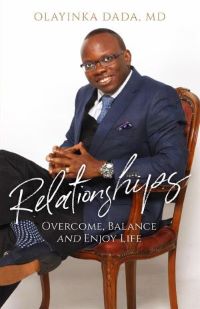
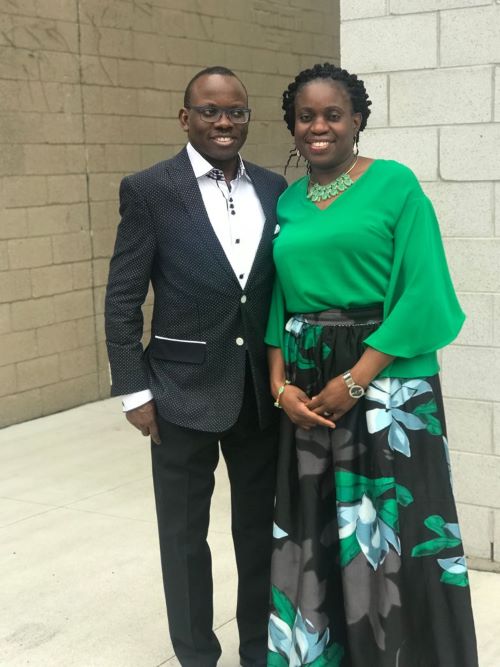
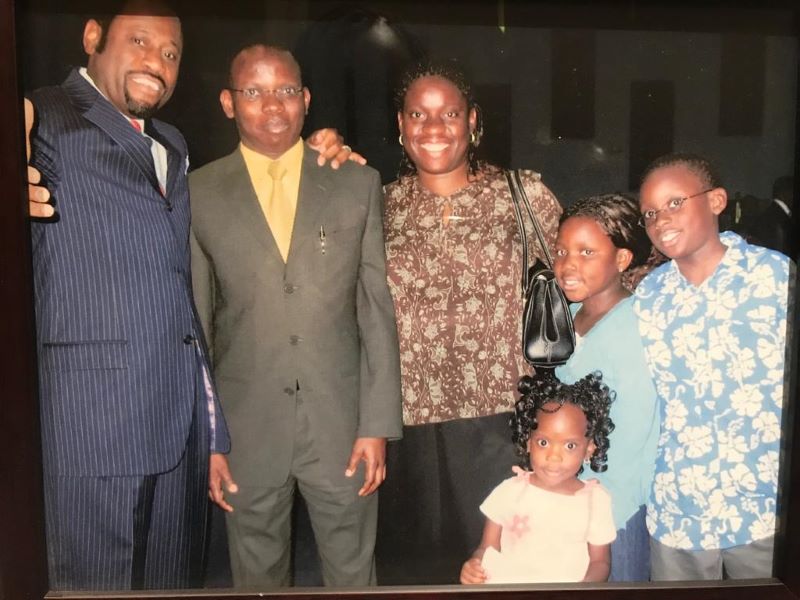

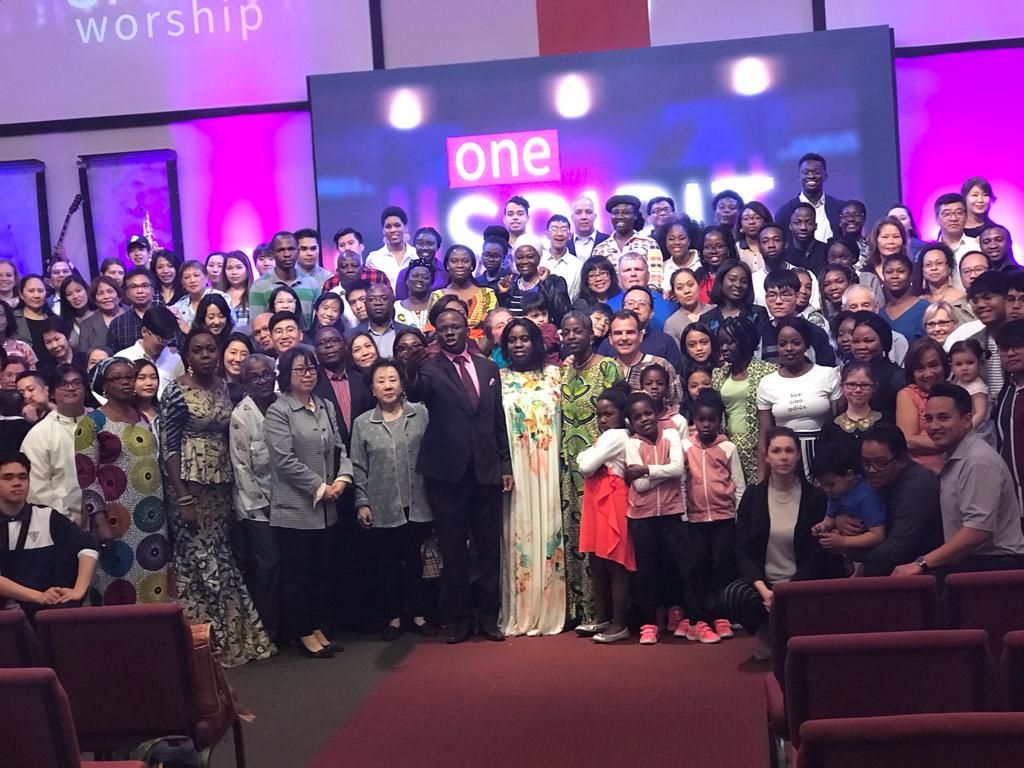
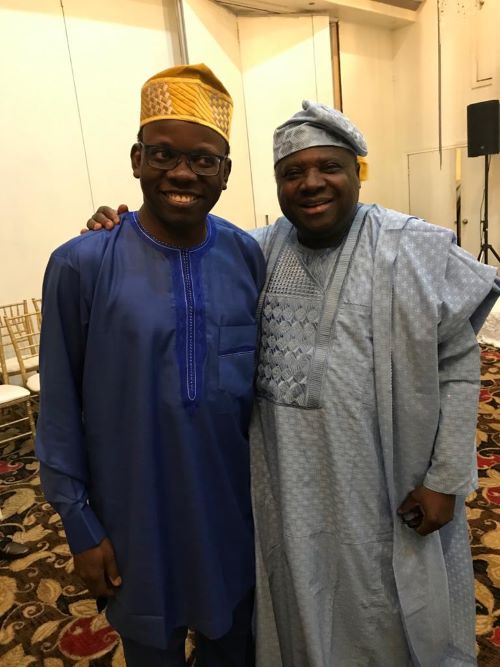
4 comments
[…] In this second part of the interview with Church Times Nigeria, Dr. Dada gives a picture of his service in God’s vineyard. Follow this link for the first part of the interview: https://churchtimesnigeria.net/swaziland-south-africa-olayinka-dada/ […]
Great and inspiring
[…] Read also: My experience in Swaziland, South Africa and Canada-Olayinka Dada, RCCG Asst. Continental Overseer:https://churchtimesnigeria.net/swaziland-south-africa-olayinka-dada/ […]
[…] Read also: My experience in Swaziland, South Africa and Canada-Olayinka Dada, RCCG Asst. Continental Overseer:https://churchtimesnigeria.net/swaziland-south-africa-olayinka-dada/ […]